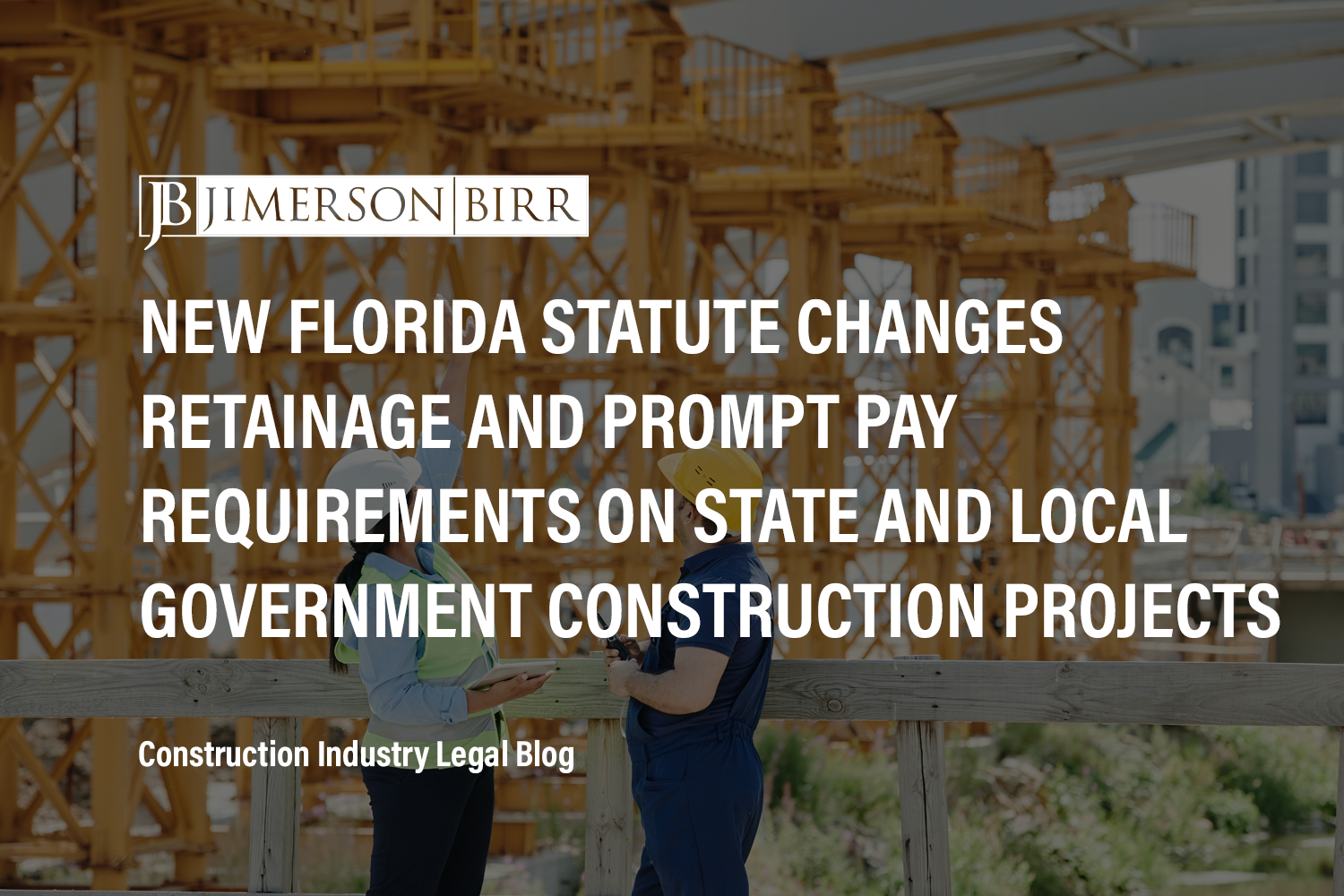
Learn how SB 346, a new law signed by Governor DeSantis, changes the prompt payment and retainage requirements for public construction projects in Florida as of July 1, 2023.


Learn how SB 346, a new law signed by Governor DeSantis, changes the prompt payment and retainage requirements for public construction projects in Florida as of July 1, 2023.
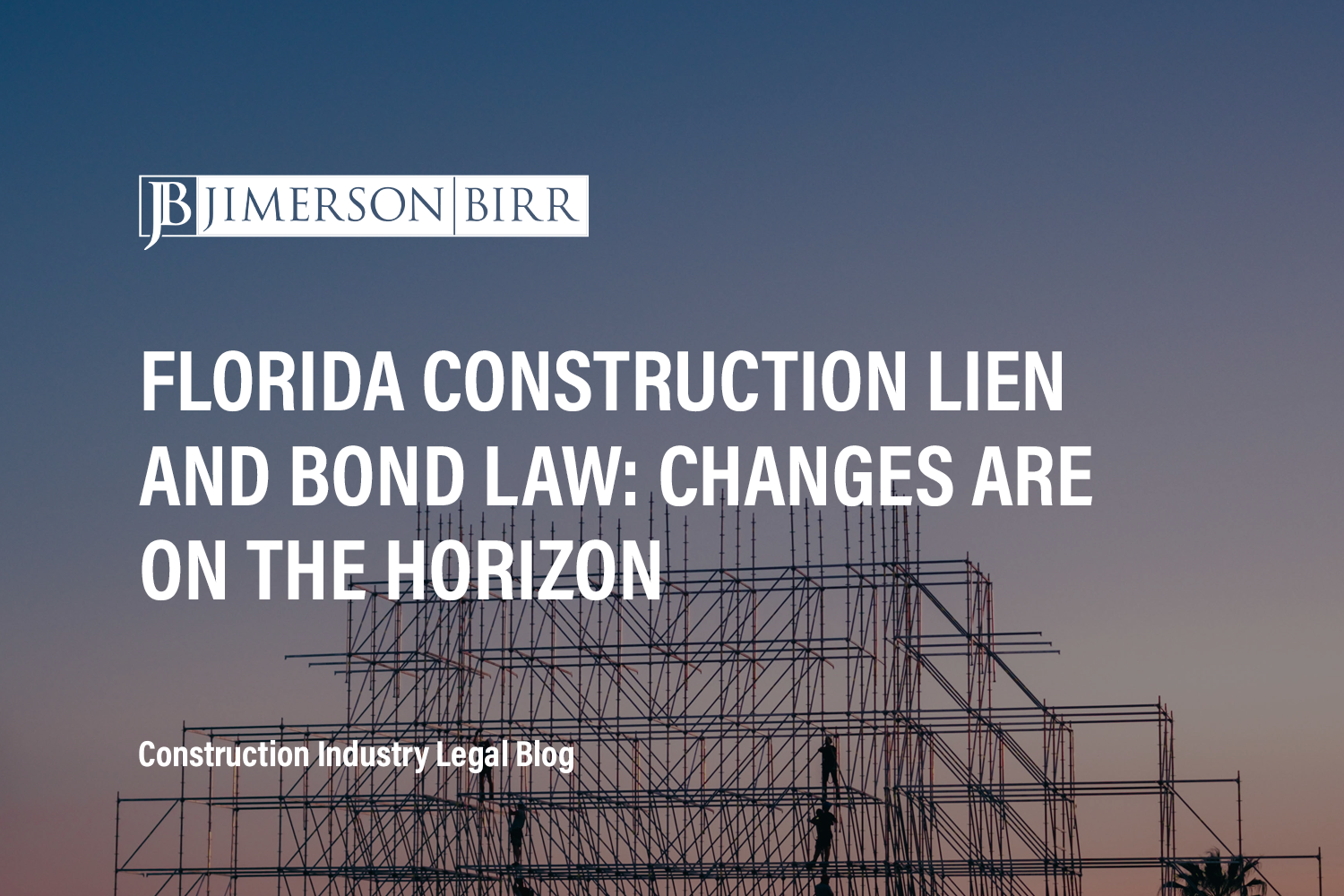
Discover the recent amendments to Florida’s construction lien and bond law that impact contractors, subcontractors, suppliers, and other lienors. Stay informed and consult legal counsel to protect your lien and bond rights in Florida’s evolving statutory landscape.

Construction professionals who work on large commercial projects are probably familiar with the ins and outs of arbitration clauses that appear in many construction contracts. They may even be familiar with the Florida Statute, § 47.025, that prohibits contractual clauses that require any legal action, including arbitration, involving a Florida […]
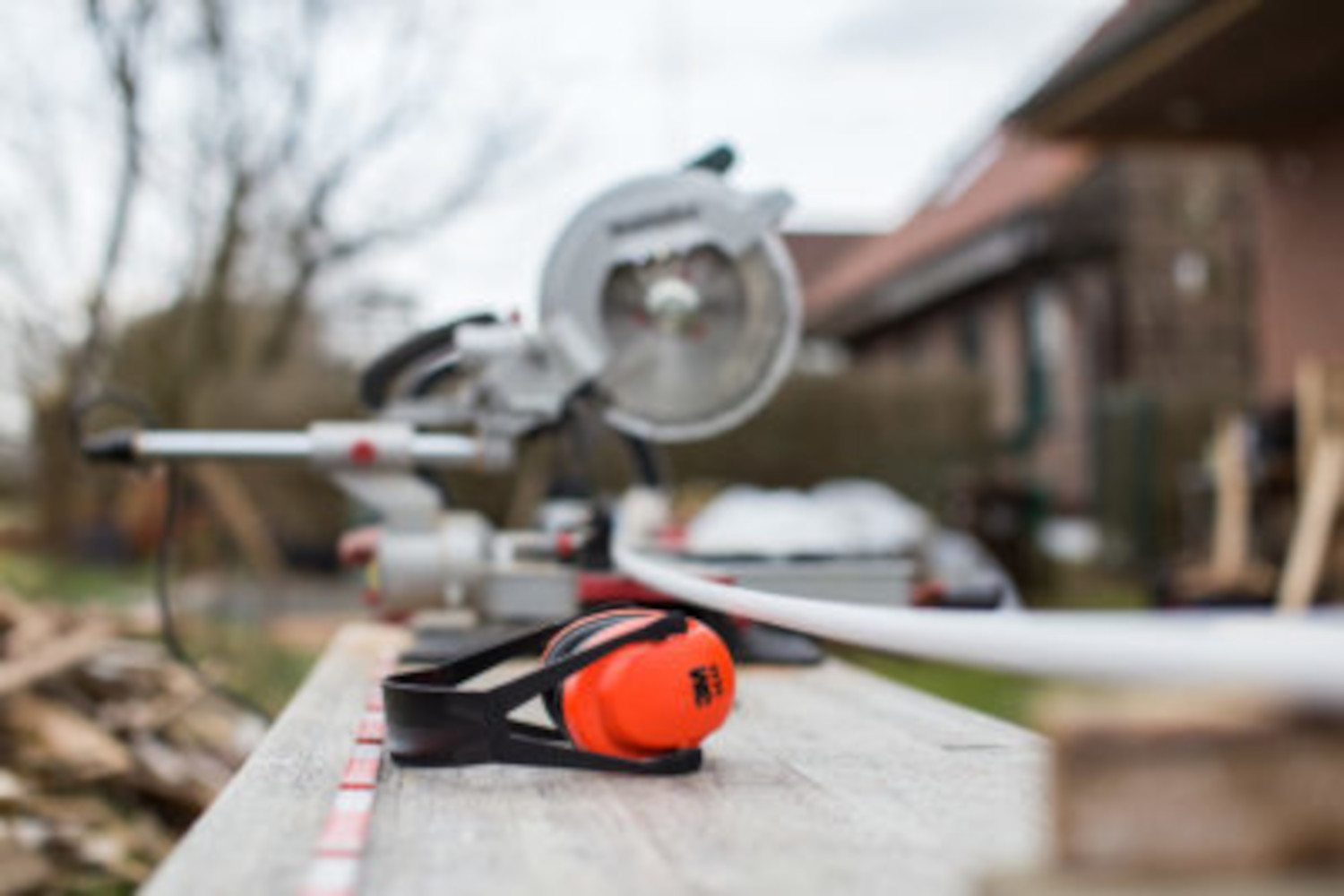
Contractors who perform excavation work in Florida must be aware of the requirements set forth in Chapter 556 of the Florida Statutes, known as the Underground Facility Damage Prevention and Safety Act (“Act”). Failing to follow the procedures set forth in the Act can result in civil and criminal penalties, including monetary damages. This post focuses on some of the requirements of the Act related to excavation work that is not beneath the waters of the State of Florida.

Whether your community association is a Homeowners Association, governed by Chapter 720, Florida Statutes, or is a Condominium Association, governed by Chapter 718, Florida Statutes, there are important things the Community Association Board (hereinafter the “Board”) should know and important actions that a prudent Board should consider at turnover. A […]
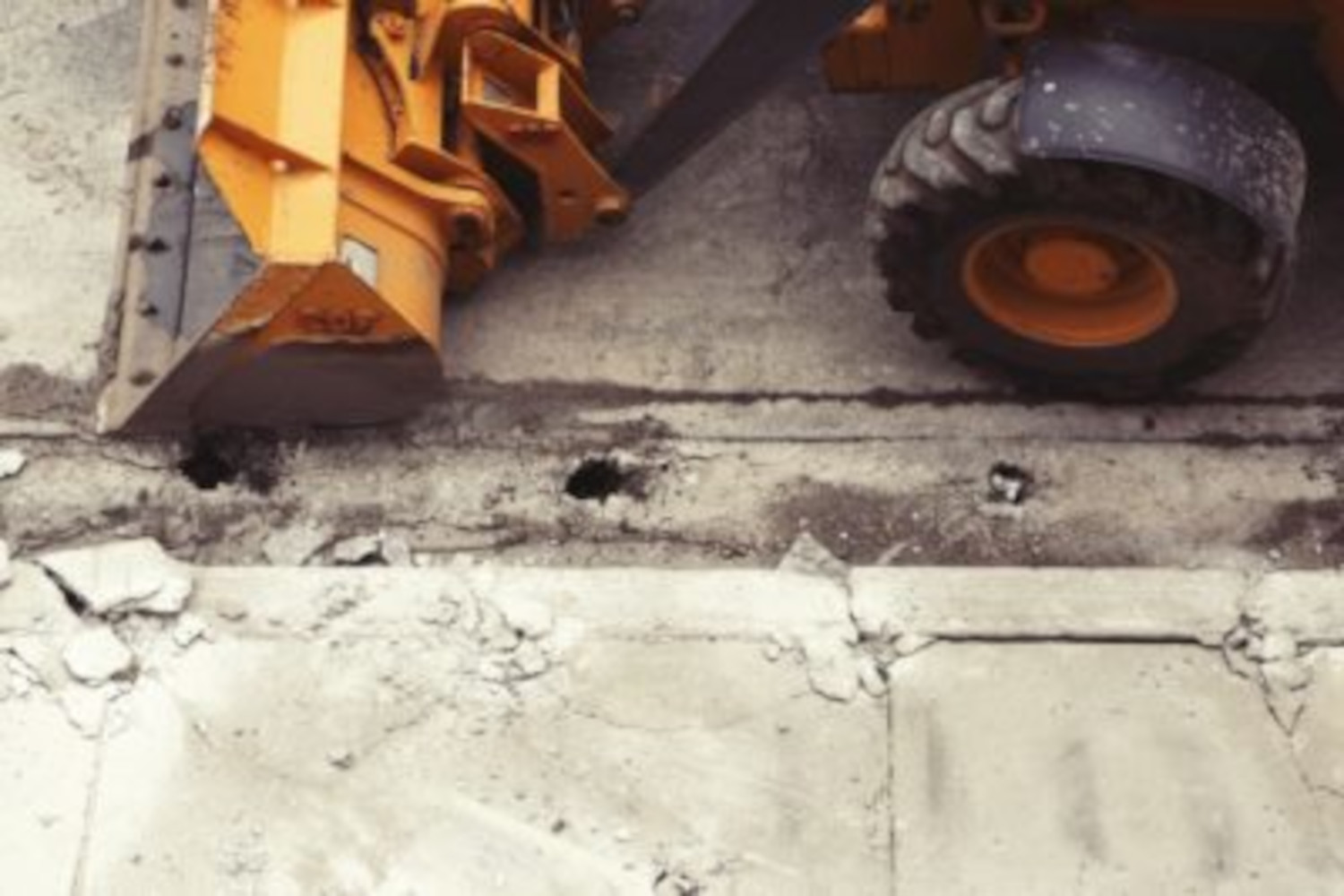
The Florida Homeowners’ Construction Recovery Fund was created under Chapter 489, Florida Statutes as a separate account in the Professional Regulation Trust Fund. The recovery fund is funded pursuant to s. 468.631. Its purpose is to provide relief for Florida homeowners who have been harmed by Florida licensed contractors. For more information on the creation and operation of the Recovery Fund, please see my blog post of September 2014. This post will discuss recent legislative changes to the Recovery Fund which expands homeowner recovery to Division II contractors.

When negotiating and drafting a contract on behalf of a business, one of the most important considerations is whether it will create personal liability for the individual signing on behalf of the business.
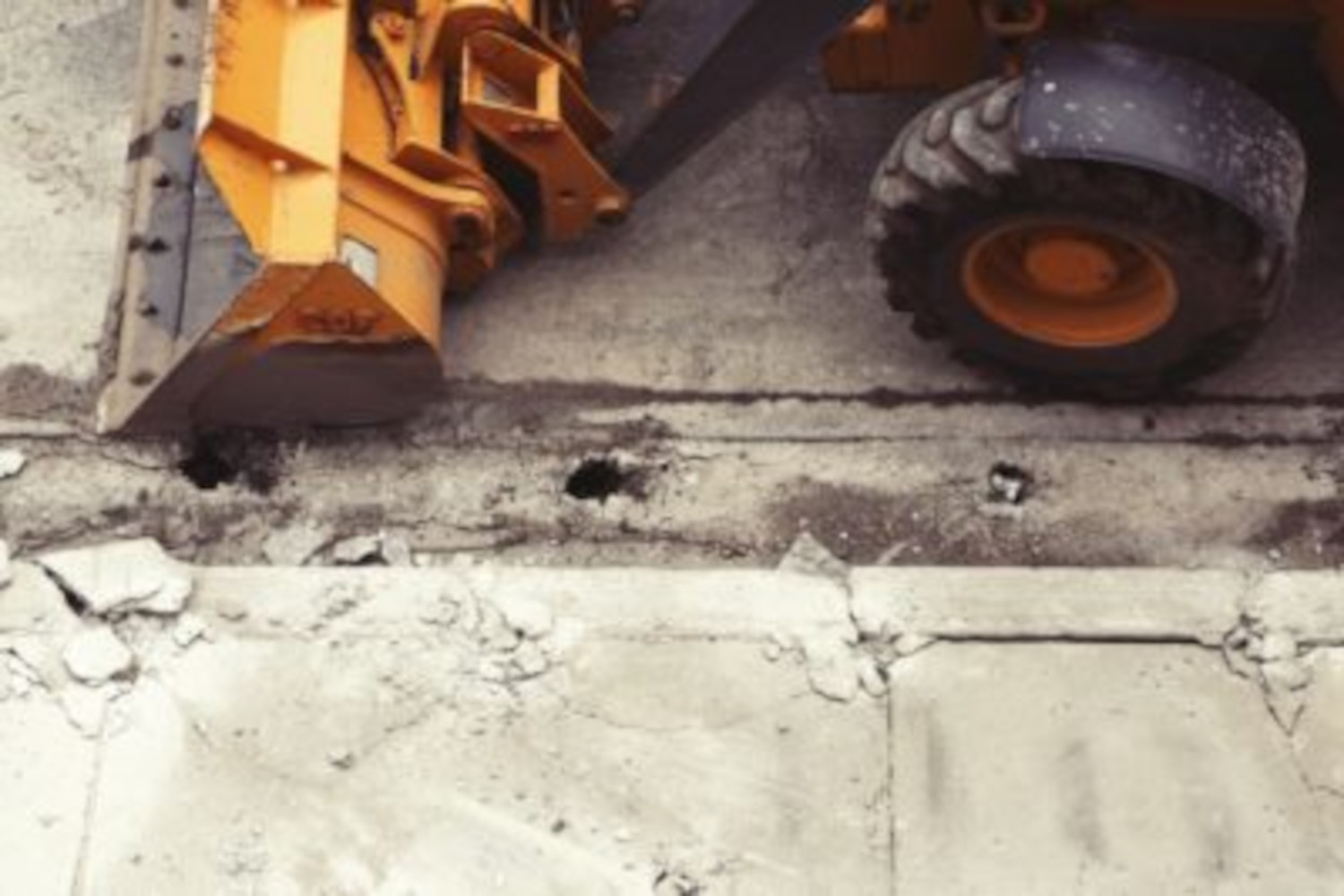
One of a construction material supplier’s biggest concerns is making sure they will get paid. There are a few things a supplier can do to ensure they get paid on a construction project. One of the most important steps a supplier should take is preserve its lien rights under Florida’s Construction Lien Law, Section 713.001-.37, Florida Statutes. The purpose of the Florida Construction Lien Law is to protect construction material suppliers from nonpayment. The Lien Law should become your best friend. You should know it well. If done right, a supplier can almost guarantee that it will get paid in full by using the Lien Law. However, strict compliance with the Lien Law is required and it is laced with traps for the unwary. Many suppliers fail to perfect their lien rights properly and find themselves unable to get paid. Don’t let that happen to you. This blawg focuses on preserving your lien rights through the proper use of lien releases. Don’t give away more of your rights than you have to.
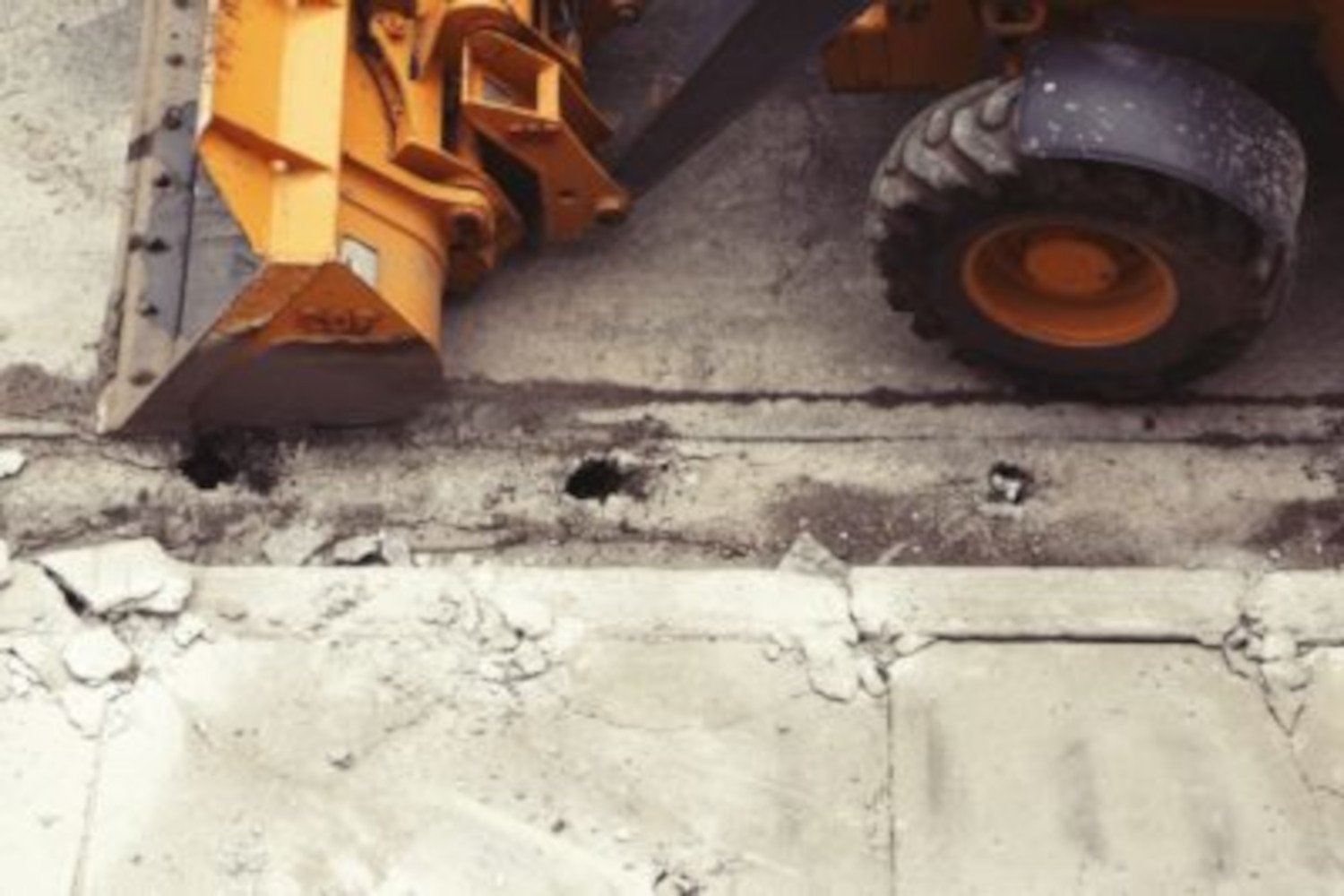
One of a construction material supplier’s biggest concerns is making sure they will get paid. There are a few things a supplier can do to ensure they get paid on a construction project. One of the most important steps a supplier should take is preserve its lien rights under Florida’s Construction Lien Law, Section 713.001-.37, Florida Statutes. The purpose of the Florida Construction Lien Law is to protect construction material suppliers from nonpayment. The Lien Law should become your best friend. You should know it well. If done right, a supplier can almost guarantee that they will get paid in full by using the Lien Law. However, strict compliance with the Lien Law is required and it is laced with traps for the unwary. Many suppliers fail to perfect their lien rights properly and find themselves unable to get paid. Don’t let that happen to you. This blog focuses on one of the initial steps a supplier must take to preserve its lien rights: properly and timely serve a Notice to Owner.

Warranties are a valuable part of a construction contract. A multi-year warranty is more valuable than a 1-year warranty. A contractor’s offer to provide a multi-year warranty may induce an owner to select that contractor and enter into the contract. Often, multi-year warranties are included in the written contract, or separate written warranty policies are provided at the end of the project. However, not all construction contracts are written, and contractors don’t always provide a written policy at the end of a project. This raises the question: are oral multi-year warranties enforceable? They may not be. The Statute of Frauds may bar their enforcement.